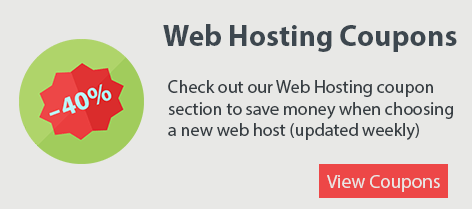Website Security Tips

No matter how you slice it, you’re going to need to have web hosting if you want to establish yourself as a serious person online. Whether you want to set up a blog, ecommerce website, or something else, you need a hosting account. With that in mind, you will also need to explore a topic that may not be the most “exciting”. That topic is none other than security. That’s right, you will need to discuss this at length with your webmaster, and in the case that you’re the webmaster and you are setting sail across the internet ocean, then you need to be ready to implement serious website security measures. Otherwise, get ready for a reality check. No matter what web hosting plan you choose, no matter what host you want to utilize, you’ll find that the following tips are going to come in handy. Otherwise, your website will be a sitting duck on the web.
Securi is a website security firm and they offer a free website scanner
Update All Software
No matter what software you’re running on the back of a host, no matter what options you’ve installed or are coding, you need to update frequently. This includes your database, and the code used to set up your web pages. If you’re using antiquated code, or you have something old installed on your website, you will end up losing your proverbial shirt over time. You need to focus on the ever changing programming rules that come to HTML, ASP, PHP, and more. If you’re not, then you could be targeted by hackers. This includes content management systems, and anything that you’re using to upload images, and galleries, etc. Update everything on your website as frequently as you can. The more you do this, the less likely you’ll get hacked.
Change Passwords Often
In the same kind of ideology that is discussed with website security above, you should take into account the passwords that you have in place. You need to change them often. You cannot go forward with the same passwords for a long period of time. You will end up eventually hacked, and sometimes you won’t even realize something is wrong. Don’t allow yourself to be a sitting duck, make sure that your website has passwords changing on a non-sequential schedule. Write them down offline, if you have a hard time remembering them, and don’t use anything that is related to your site, your personal information, or is found in the dictionary. You’ll find that the best passwords are non-sequential mixes of numbers and letters.
Use a free password generator if you’re having a hard time thinking of a password.
Content Management Systems
If you are going to allow a software to be the backbone of your web hosting, you’ll want to make sure that you use the right option. There’s a lot of free content management systems out there, but not all of them are going to help you with security. The most popular option right now is that of WordPress. This is a solid solution, but if you’re going to use this, make sure that you update it often, and you only download it from the source. Don’t download anything from a website that you aren’t aware of, or that is not well reviewed. Be careful. Once you upload and install a content management system, you could risk infecting the hosting account you’re on, which could lead to issues with your website hosting provider.
Extensions Are Dangerous (Be Careful)
Whenever you are installing extensions, or WordPress plugins to your website, make absolutely sure you are careful. You need to make sure that you are getting these things from a reputable source. Not only that, you should always make sure that you are updating them once installed. Keep track of vulnerabilities, and don’t just upload any old extension that you see. Even if you want to use it to your advantage, it’s easy to get caught up with the wrong things, so don’t just install anything. If you have any doubt, walk away, and don’t use the extension or plugin. Your website can remain safe if you’re not uploading constant extensions and plugins to test out.
Back Things Up Often
It’s important to back up your website often. You can use a tool that you find online, or you can perhaps use your website hosting account to help you back things up. The goal is to have multiple copies of all your files, and software so that if anything goes wrong, you have the files to re-load. Often times, big companies use website hosting to mirror their main accounts, so that if one goes down, there’s a second one that comes into place. Whatever the case is, you’re going to want to keep constant updates of your site, files, and more. Don’t dismiss this. It’s very important that you have backups of everything overall.
Get An SSL Certificate
This is something that is going to help your traffic and information stay put. SSL doesn’t really protect you like anti-virus. Instead, it helps the information from your website stay encrypted. That includes any information that you may have to get from a customer. In the world of ecommerce, this is a mandatory element to having a shopping cart. If you do not have this in place, your client’s credit card information could pass through and you could end up with a huge dramatic dip in interest. Getting an SSL certificate isn’t going to cost you a great deal, but the information that gets stolen from you as a result of not having one on your website could cost you a great deal.
Check Up On Your Files
Only you can know all the files that you have on your website. Make sure that you do a bit of checking in on them from time to time. Imagine the web hosting account you have like a walk in closet. You will want to look at your clothes and see what you have and what you don’t have. The same goes for your website. Look into the backend and see what you’ve uploaded, where things are, and look for folders and files that you don’t recognize at all. Sometimes, hackers will put files in place that are dormant for a time, until they send a relay attack, or decide to launch. If you see something is awry, compare it to your back up, and then delete it if it doesn’t belong. You don’t want to get surprised here.
Secure FTP Transmissions
Whenever you’re uploading files through FTP, you’re leaving your network open. You’re also going to be showing people what you’re doing with your website. To offset this, make sure that you utilize SFTP. This is a secure encryption option that will let you upload files that are going to allow you upload without having your files in the open. Some FTP programs allow this outright, like FileZilla, which you can use to have a secure FTP transfer. It’s best not to just upload files without this, as you never know who’s lurking to steal passwords, files, and more. Secure all transactions between your website and your desktop, and servers.
Check Your Panel Logs
Guess what? Your hosting company has tracking of your administration panel logins. They let you see them in major cPanel, and Plesk updates. Here’s the thing, you’re going to need to look to see if there is any suspicious activity. The suspicious activity that you may see could tell you it’s time to change your password. Don’t allow anyone into your website, by ignoring this. It’s easy to ignore what is going on here, because no one really thinks about checking their administrative logins. Always double check and see whether you’re seeing activity that is not necessarily your doing. Do this at least twice a week, just to make sure that everything is going well. If there’s any errors, change your passwords immediately, you never want to ignore this.
What To Do If Infected
It can happen, your website may get infected by a virus, or any sort of malicious code. When this strikes, you need to be ready to change things up again. The easiest thing to do is delete all your files, delete your database and hit the proverbial reset button. If you have a VPN, you can do a manual reboot after you delete all your files. If you don’t have that, then ask your web hosting company to move you from one server to another. After that is done, upload your back up and start working from there.
At the end of the day, there’s a lot that goes into website security today. The tips mentioned above are going to help you with securing your website, regardless of what type of hosting you have or what type of content you’re using. Many people sign up for web hosting and just let their guard down. Don’t do that, or you could be letting hackers not only run through your files, but steal your personal information and the personal information of your visitors. It’s best to be vigilant, and use the tips above to get into a safe state with your website.





